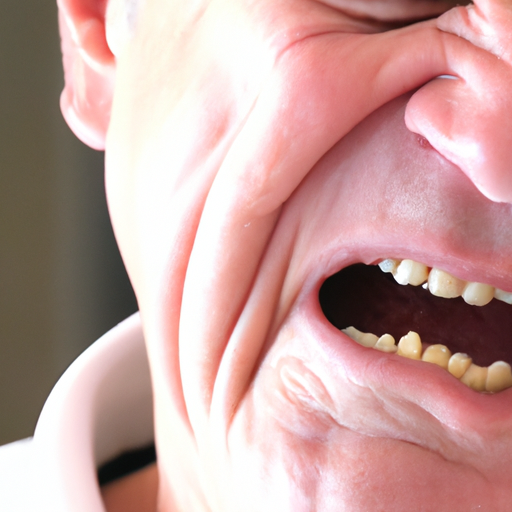Tooth Cleaning Relief Guide

The act of cleaning one’s teeth is a daily ritual that many take for granted, yet for some, it can be a daunting task filled with anxiety and discomfort. Whether due to sensitive teeth, gums, or a fear of dental procedures, the mere thought of tooth cleaning can be overwhelming. However, it’s crucial to maintain good oral hygiene to prevent a multitude of dental issues that can lead to more severe health problems.
Understanding the importance of regular tooth cleaning is the first step towards making it a less intimidating process. The American Dental Association recommends brushing teeth at least twice a day and flossing once a day to remove plaque—a sticky film of bacteria—that can cause cavities and gum disease. Despite these recommendations, many find themselves struggling to adhere to this regime due to various reasons, including but not limited to, lack of time, improper technique, or simply because it hurts.
For those who experience pain or discomfort during tooth cleaning, it’s essential to identify the root cause of the issue. Sensitive teeth, for instance, can be a significant barrier. Tooth sensitivity occurs when the dentin—the layer of tissue beneath the tooth’s enamel—becomes exposed, allowing hot, cold, sweet, or sour substances to reach the nerves, causing pain. This exposure can happen due to receding gums, tooth decay, or even the use of hard-bristled toothbrushes.
Another critical factor to consider is the technique used for cleaning teeth. Many people brush their teeth with too much force or use a hard-bristled toothbrush, which can damage the gums and lead to recession and sensitivity. The proper technique involves using a soft-bristled toothbrush and gentle circular motions to clean all surfaces of the teeth without applying too much pressure.
Furthermore, the choice of toothpaste can also play a significant role in tooth cleaning relief. For individuals with sensitive teeth, using a toothpaste specifically designed for sensitivity can provide significant relief. These toothpastes contain ingredients like potassium nitrate, which helps to block the dentinal tubules in the teeth, reducing the flow of substances to the nerves and thus reducing sensitivity.
In addition to the right technique and toothpaste, various tools and technologies are available to make tooth cleaning a more comfortable and effective process. Electric toothbrushes, for example, are often recommended for people with sensitive teeth or gums because they can clean more gently and efficiently than manual toothbrushes. Some electric toothbrushes also come with features like pressure sensors that alert you if you’re brushing too hard, and timers that ensure you brush for the full recommended two minutes.
For those who struggle with flossing due to sensitive gums or tightly spaced teeth, interdental brushes or water flossers can be incredibly helpful. Interdental brushes are small, cone-shaped brushes that can be inserted between the teeth to remove plaque and food particles, while water flossers use a stream of water to dislodge and remove plaque and debris from between the teeth and below the gum line.
It’s also worth noting that regular dental check-ups are crucial for maintaining good oral health and addressing any issues before they become severe. Dentists can provide personalized advice on tooth cleaning, recommend appropriate products, and help manage conditions like tooth sensitivity.
To further assist individuals in their journey towards tooth cleaning relief, it’s beneficial to explore the psychological aspects of anxiety related to dental hygiene. Cognitive behavioral therapy (CBT) and relaxation techniques, such as deep breathing or meditation, can help manage the fear or anxiety associated with tooth cleaning and dental visits. Additionally, explaining the benefits of good oral hygiene in a clear and empathetic manner can help demystify the process and make it less intimidating.
In conclusion, achieving tooth cleaning relief involves understanding the causes of discomfort, adopting proper techniques, using the right products, and sometimes, seeking professional help. By addressing the physical and psychological barriers to effective tooth cleaning, individuals can develop a healthier relationship with their oral hygiene routine, ensuring a brighter, healthier smile for years to come.
Practical Application Guide
To implement the strategies discussed for achieving tooth cleaning relief, follow these steps:
- Consult a Dentist: Start by visiting a dentist to rule out any underlying dental issues causing sensitivity or discomfort.
- Choose the Right Tools: Invest in a soft-bristled toothbrush and consider an electric toothbrush for more effective and gentle cleaning.
- Select Suitable Products: Use toothpaste designed for sensitive teeth and consider a mouthwash for additional protection.
- Master the Technique: Practice gentle circular motions with your toothbrush and avoid using too much force.
- Explore Additional Tools: For those who struggle with flossing, consider interdental brushes or a water flosser.
- Relaxation Techniques: Engage in relaxation exercises to help manage anxiety related to tooth cleaning.
FAQ Section
What causes tooth sensitivity during cleaning?
+Tooth sensitivity during cleaning can be caused by exposed dentin, which allows substances to reach the nerves, causing pain. This exposure can be due to receding gums, tooth decay, or using the wrong toothbrush.
How can I properly brush my teeth to avoid sensitivity?
+Proper brushing involves using a soft-bristled toothbrush and gentle circular motions on all surfaces of the teeth. Avoid using too much force and ensure to brush for the full recommended two minutes.
What are interdental brushes, and how do they help with flossing?
+Interdental brushes are small brushes designed to clean between the teeth, especially useful for those with tightly spaced teeth or sensitive gums. They help remove plaque and food particles, making flossing easier and less painful.
Can electric toothbrushes help with tooth cleaning relief?
+Yes, electric toothbrushes can be more gentle and efficient than manual toothbrushes, especially for those with sensitive teeth or gums. Many models come with features like pressure sensors and timers to ensure a thorough yet gentle clean.
How can I manage anxiety related to tooth cleaning?
+Managing anxiety related to tooth cleaning can involve relaxation techniques such as deep breathing, meditation, or seeking help from a therapist. Cognitive behavioral therapy (CBT) can also be beneficial in addressing the underlying causes of dental anxiety.
By following these guidelines and exploring the various tools and strategies available, individuals can find relief from the discomfort and anxiety associated with tooth cleaning, leading to a healthier, more confident smile.


